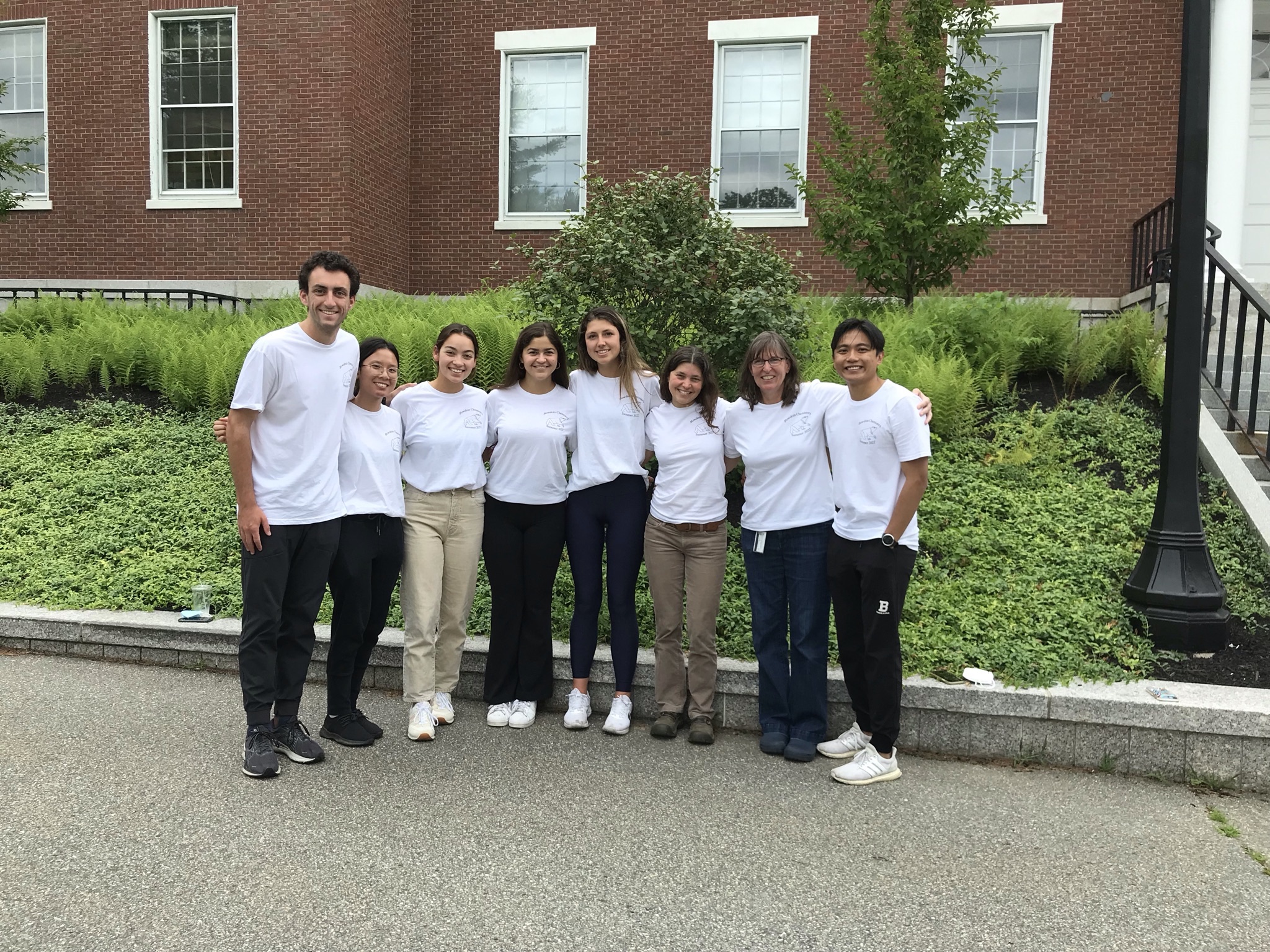Professor Danielle Dube on her involvement in Nobel Prize awarded biochemistry research
October 21, 2022
 Emily Murphy
Emily MurphyProfessor of Chemistry and Biochemistry Danielle Dube has worked at the College for the past 15 years. Almost two decades ago, she started in the Bertozzi Lab, led by Carolyn Bertozzi at the University of California-Berkeley. Earlier this month, on October 5, the research she helped conduct in that lab earned a Nobel Prize for its exceptional impact on the future of chemistry.
At the beginning of her professional career, Dube started as a graduate student working under the mentorship of Bertozzi, who now serves a Professor of Chemistry and Professor of Chemical and Systems Biology and Radiology at Stanford University and a Howard Hughes Medical Institute (HHMI) investigator.
“[Bertozzi’s research] really resonated with my own interest in the intersection of chemistry and biology,” Dube said. “She was this fantastic organic chemistry professor who [investigated how to] use organic chemistry [to] manipulate biological systems, so that was right up my alley.”
To map important but elusive biomolecules on the surface of cells—glycans—the lab developed bioorthogonal molecules. These molecules can exist and react in the body without disrupting the natural chemistry of the organism. This development has significant implications for the pharmaceutical industry and is a game-changer for cancer research.
“What we showed in the paper was that [bioorthogonal reactions] even work in the context of a living animal with no detriment to the animals physiology,” Dube said. “Like Legos—as was described by the Nobel Committee—these two pieces could essentially find one another and create a new chemical bond and not interfere with anything else in the living system.”
Working with the Bertozzi lab influenced Dube’s present research at Bowdoin which also involves using bioorthogonality to investigate a different system: bacteria cells.
Instead of targeting cancer cells, Dube, along with six student research assistants and one full time lab manager, is working to weaken bacteria with the end goal of developing selective antibiotics that interfere with pathogenic bacteria without harming beneficial bacteria and human cells.
“My hope is that my research in this arena will provide accessible chemical tools that my lab and others can use to add toward the goal of developing selective antibiotics, diagnostics, and vaccines,” Dube wrote in an email to the Orient.
Apart from her research, Dube is teaching General Chemistry (CHEM 1109) this semester. In past years, she has also taught a non-science major course on drug discovery. In the spring, she’ll be teaching an advanced seminar course called Chemical Biology in which she plans to dive into bioorthogonal chemistry, its history and how it works.
Dube hopes to establish a welcoming and inclusive lab environment and that her students garner a love for biochemistry—if they haven’t already—and maintain the confidence to pursue their own academic interests.
“I [hope] my research program will provide an empowering venue for Bowdoin undergraduates to ask and answer biochemistry questions, personally contribute to the growing body of knowledge in the field, see the importance of collaboration in science and serve as a launching point for them to pursue their own passions,” Dube wrote.

Comments
Before submitting a comment, please review our comment policy. Some key points from the policy: